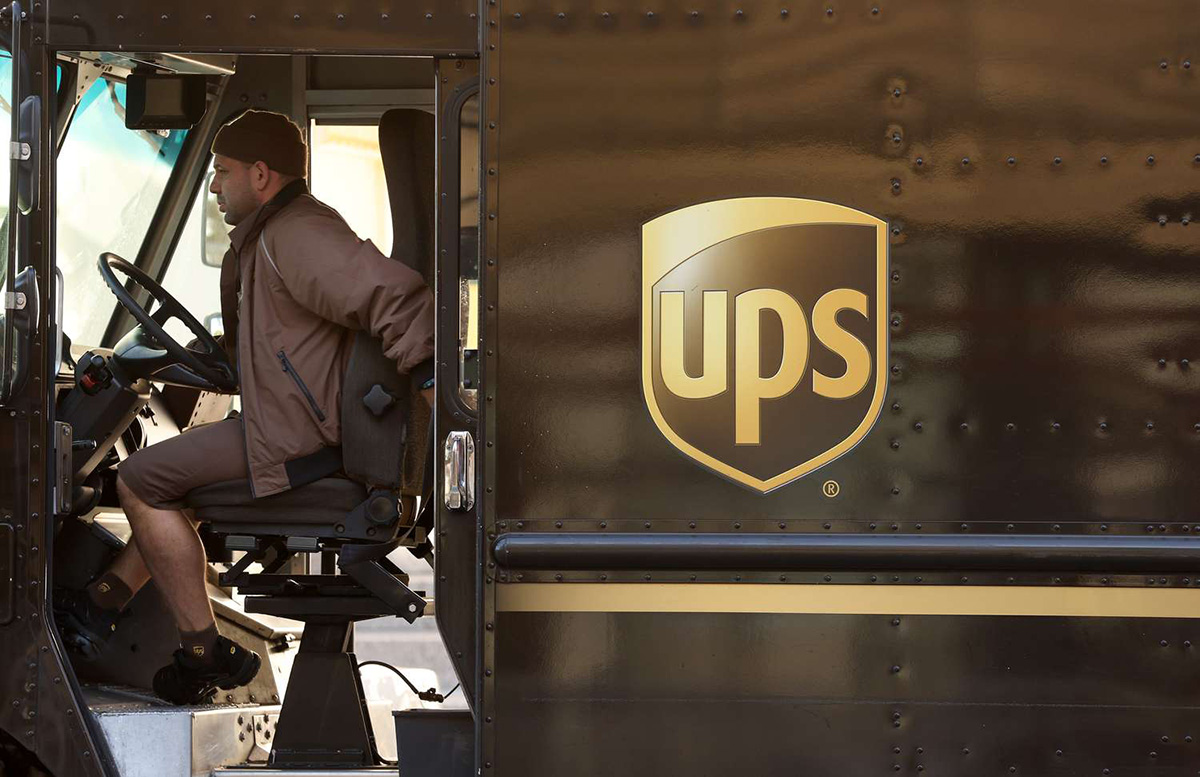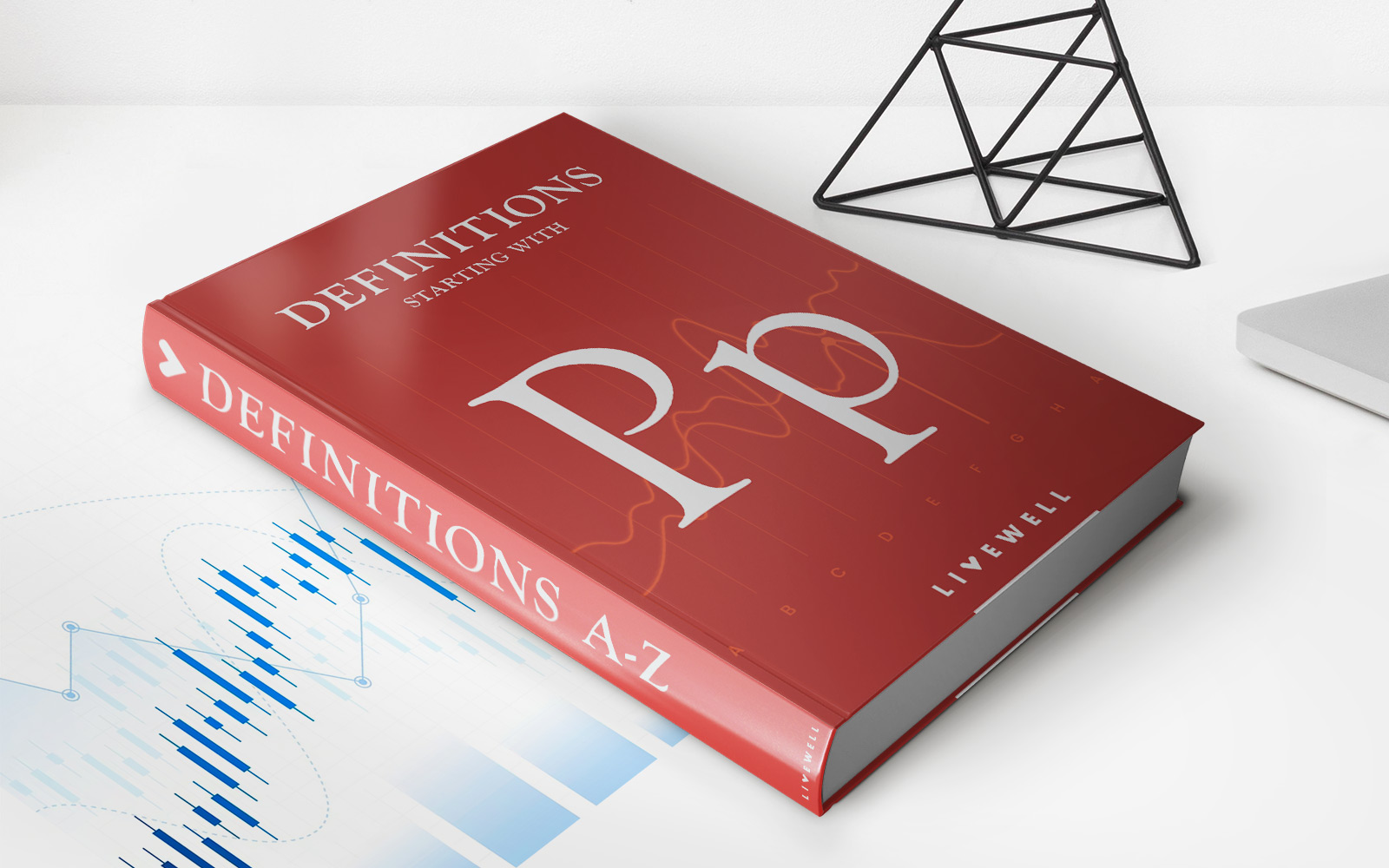

Finance
How Much Does UPS Insurance Cost?
Published: November 16, 2023
Find out the cost of UPS insurance and protect your finances. Compare rates and coverage options to choose the best plan for you.
(Many of the links in this article redirect to a specific reviewed product. Your purchase of these products through affiliate links helps to generate commission for LiveWell, at no extra cost. Learn more)
Table of Contents
Introduction
Welcome to a comprehensive guide on UPS insurance costs. If you’re a business owner who relies on shipping services like UPS to transport your products, it’s essential to understand the importance of insurance coverage. Accidents and incidents can happen during the shipping process, including damage, theft, or loss of goods. UPS insurance provides financial protection and peace of mind against these unforeseen events.
In this article, we will delve into the factors that affect UPS insurance costs, the different types of insurance coverage available, and offer tips on how to reduce your insurance expenses. Whether you’re a small e-commerce business owner or a larger enterprise, understanding the investment required for insurance coverage is crucial for managing your shipping budget and protecting your valuable shipments.
UPS, one of the world’s largest shipping services, offers a range of insurance options that can be tailored to suit your specific shipping needs. However, the cost of insurance coverage will vary depending on numerous factors. By understanding these factors, you can make informed decisions when selecting insurance coverage and minimize any potential financial risks.
In the following sections, we will discuss each factor in detail, enabling you to make well-informed decisions regarding your UPS insurance needs. We will also compare different insurance providers and offer tips on how to reduce your insurance costs without compromising on coverage.
So, if you’re ready to explore the world of UPS insurance and learn about the costs involved, let’s dive in!
Understanding UPS Insurance
Before delving into the cost of UPS insurance, it’s important to have a solid understanding of what UPS insurance is and what it covers. UPS insurance is a form of financial protection that can help safeguard your shipments in case of loss, damage, or theft during transit. This coverage can provide reimbursement up to the declared value of the package or the actual value of the goods, depending on the type of insurance selected.
When you ship a package with UPS, it automatically includes some basic liability coverage. However, this coverage is limited and may not be sufficient to fully compensate you for the value of your shipment if any unfortunate incidents occur. That’s where additional UPS insurance comes into play. By purchasing additional insurance, you can enhance your coverage and ensure that your items are protected.
UPS offers several types of insurance coverage, including:
- Declared Value Coverage: This is the basic coverage provided by UPS and is included in the shipping cost. It provides limited protection for loss or damage, based on the declared value of the package, up to a certain limit.
- UPS Parcel Pro Insurance: This is an optional insurance coverage offered by UPS through its subsidiary, Parcel Pro. It provides comprehensive protection against loss, damage, theft, and mysterious disappearance of valuable items.
- UPS Capital Cargo Insurance: This is a specialized insurance option provided by UPS Capital Insurance Agency, Inc. It offers coverage for high-value and high-risk shipments, such as fine art, jewelry, and other valuable items.
It’s important to carefully evaluate your shipping needs and the value of the items you are shipping to determine the appropriate level of insurance coverage. While UPS offers various insurance options, it’s essential to choose coverage that aligns with the nature and value of your shipments.
Now that we understand the basic concept of UPS insurance and the different types available, let’s dive into the factors that can impact the cost of UPS insurance.
Factors Affecting UPS Insurance Cost
The cost of UPS insurance is influenced by several factors that determine the level of risk associated with insuring your shipments. By understanding these factors, you can make informed decisions about the type and amount of insurance coverage you need. Here are some key factors that can affect the cost of UPS insurance:
- Declared Value: The declared value of your package plays a significant role in determining the insurance cost. It refers to the total value of the contents of your shipment. Higher declared values typically lead to higher insurance premiums, as there is a greater potential liability for the carrier if a loss or damage occurs.
- Type of Goods: The nature of the goods you are shipping can impact the insurance cost. Certain items, such as high-value electronics or fragile items, may have a higher risk of damage or theft during transit. As a result, insuring such goods may lead to higher premiums.
- Transportation Mode: The mode of transportation used for shipping can affect insurance costs. Different modes, such as ground transportation, air freight, or ocean freight, carry varying levels of risk. For example, air freight may have higher insurance costs due to the shorter transit time and potential for time-sensitive shipments.
- Destination: The destination of your shipment can also impact the insurance cost. Some regions or countries may have a higher risk of theft or damage during transit, which may result in higher insurance premiums.
- Additional Services: If you choose to add extra services to your shipment, such as signature confirmation or special handling, it may increase the insurance cost. These services provide additional security and protection for your shipment, but they come at an additional cost.
- Insurance Deductible: The deductible is the amount you need to pay out-of-pocket before the insurance coverage kicks in. Higher deductibles can lower the insurance premium but may increase your financial responsibility in case of a claim.
- Claims History: Your claims history with UPS or other shipping carriers can impact the cost of insurance. If you have a previous history of filing claims for lost or damaged shipments, it may result in higher premiums.
It’s worth noting that the exact formula used by UPS to calculate insurance costs may be proprietary and may involve additional factors not mentioned above. Therefore, it’s advisable to consult with UPS or an insurance professional to get accurate pricing and understand the specific factors that may affect your insurance cost.
Now that we have discussed the factors influencing UPS insurance costs, let’s turn our attention to the different types of insurance coverage offered by UPS.
Types of UPS Insurance
When it comes to UPS insurance, there are several types of coverage options available to meet the diverse needs of businesses and individuals. Understanding these options can help you choose the right insurance coverage for your shipments. Here are the main types of UPS insurance:
- Declared Value Coverage: This is the basic insurance coverage provided by UPS for all shipments. It is automatically included in the shipping cost and provides limited protection for loss or damage based on the declared value of the package. UPS sets a maximum liability limit for each shipment, which may vary based on the shipment type and destination.
- UPS Parcel Pro Insurance: UPS offers additional insurance coverage through its subsidiary, Parcel Pro. Parcel Pro Insurance is an optional insurance option that provides comprehensive protection against loss, damage, theft, and mysterious disappearance of valuable items. It is designed for businesses and individuals shipping high-value goods that exceed the declared value coverage limits of UPS.
- UPS Capital Cargo Insurance: UPS Capital Cargo Insurance is a specialized insurance option offered by UPS Capital Insurance Agency, Inc. This coverage is designed for high-value and high-risk shipments, such as fine art, jewelry, or high-end electronics. It provides coverage for a wider range of perils, including accidental damage, theft, loss, and even natural disasters.
Each type of insurance coverage has its own terms, conditions, and limitations. It’s important to carefully review the specifics of each coverage option to ensure it aligns with your shipping needs and provides adequate protection for your valuable shipments.
Keep in mind that UPS insurance coverage should not be confused with freight forwarder or third-party insurance. If you are using a freight forwarder or shipping agent, they may offer their own insurance services separate from UPS. It’s crucial to understand the coverage provided by each party involved in the shipping process and determine the most suitable insurance coverage for your specific needs.
Now that we have explored the different types of UPS insurance coverage, let’s move on to understanding the cost of UPS insurance.
Cost of UPS Insurance
The cost of UPS insurance can vary depending on several factors, including the declared value of the package, the type of goods being shipped, and the level of coverage selected. It’s important to note that the insurance cost is typically calculated as a percentage of the declared value of the shipment.
For the basic declared value coverage provided by UPS, the cost is included in the shipping cost. However, this coverage has limitations and may not fully protect high-value or fragile items. If you require additional insurance coverage, such as UPS Parcel Pro Insurance or UPS Capital Cargo Insurance, there will be an additional premium to be paid.
The premium for additional insurance coverage is influenced by factors such as the type of goods being shipped, the destination, the mode of transportation, and the desired coverage level. High-value, fragile, or high-risk items may have higher insurance premiums due to the increased risk associated with transporting them.
The cost of UPS insurance is typically calculated based on a rate per $100 of declared value. This rate can vary and may be subject to minimum premiums. It’s advisable to consult with UPS or review their insurance pricing guide to get accurate pricing information based on your specific shipping requirements.
When comparing insurance costs between different providers, it’s important to consider both the coverage offered and the premium rates. Cheaper insurance may not always provide the level of coverage you need, and it’s crucial to strike a balance between cost and protection.
In addition to the insurance premium, it’s important to consider any deductibles that may apply. A deductible is the amount you must pay out-of-pocket before the insurance coverage kicks in. Higher deductibles can help lower the insurance premium but may increase your financial responsibility in case of a claim.
By carefully assessing your shipping needs, understanding the value of your goods, and considering the level of risk involved, you can make an informed decision about the appropriate level of insurance coverage and the associated cost for your UPS shipments.
Now, let’s move on to comparing different UPS insurance providers to ensure you find the best coverage options for your needs.
Comparing UPS Insurance Providers
When it comes to selecting insurance coverage for your UPS shipments, it’s important to explore and compare different insurance providers. While UPS offers its insurance options, it’s worth considering other providers to ensure you find the best coverage options for your specific needs. Here are some factors to consider when comparing UPS insurance providers:
- Coverage Options: Evaluate the types of coverage offered by different insurance providers. Look for providers that offer comprehensive coverage for loss, damage, theft, and other perils that align with your shipping needs.
- Policy Limits: Check the policy limits of each provider. Ensure that the coverage limits are sufficient to protect the value of your shipments. It’s important to consider any restrictions or exclusions that may apply.
- Premium Rates: Compare the premium rates charged by different providers. Keep in mind that cheaper insurance may not always provide the level of coverage you need. Look for a balance between cost and protection.
- Claims Process: Research the claims process of each insurance provider. Look for providers that have a streamlined and efficient claims process. Easy claims filing and prompt disbursement of claims can make a significant difference in your overall experience.
- Reputation and Reviews: Consider the reputation and customer reviews of each insurance provider. Look for providers that have a solid track record in the industry and positive feedback from customers. This can give you confidence in their ability to deliver reliable coverage and support.
- Additional Benefits: Some insurance providers may offer additional benefits or services alongside their insurance coverage. These could include risk management tools, loss prevention resources, or access to specialized expertise. Evaluate these additional benefits to determine if they align with your needs.
By taking the time to compare different UPS insurance providers, you can make an informed decision about the best coverage options for your shipments. It’s important to consider both the coverage provided and the reputation of the insurance provider to ensure you are getting the most value and protection for your investment.
Now that we have explored comparing different UPS insurance providers, let’s move on to some useful tips to help you reduce your UPS insurance costs.
Tips to Reduce UPS Insurance Costs
Insurance costs can be a significant expense when it comes to shipping your products with UPS. However, there are strategies you can implement to help reduce your UPS insurance costs without compromising on necessary coverage. Consider these tips to help lower your insurance expenses:
- Proper Packaging: Invest in high-quality packaging materials and proper packing techniques to minimize the risk of damage during transit. Adequately protecting your shipments can help reduce the likelihood of filing insurance claims.
- Accurate Declared Value: Ensure that you accurately declare the value of your shipments. Overestimating the value can result in higher insurance premiums. However, it’s essential to avoid underestimating the value, as it may lead to inadequate coverage in case of a claim.
- Risk Assessment and Management: Analyze the types of goods you are shipping and identify any specific risks associated with them. Implement risk management practices, such as using specific packaging methods for fragile items or utilizing tracking and monitoring services to reduce the risk of theft.
- Loss Prevention Measures: Implement loss prevention measures, such as utilizing security seals, employing tracking and monitoring technologies, or requiring signature confirmation upon delivery. These measures can reduce the risk of loss and potential insurance claims.
- Deductible Consideration: Evaluate the deductible options offered by insurance providers. Choosing a higher deductible can lower your insurance premiums. However, ensure that you can comfortably afford the deductible amount if you need to make a claim.
- Explore Multiple Insurance Providers: Consider exploring insurance options beyond UPS. Research and compare insurance providers to find the best coverage and rates for your shipping needs. It’s important to ensure that the provider offers reliable coverage and prompt claims processing.
- Monitor and Evaluate: Regularly review your shipping data, insurance claims history, and associated costs. Identify any patterns or areas where you can improve packaging, reduce risks, or negotiate better insurance rates. Continuously monitoring and evaluating your shipping process can help you make informed decisions to lower insurance costs over time.
By implementing these strategies, you can potentially reduce your UPS insurance costs while still maintaining adequate coverage for your shipments. Remember to regularly review and assess your insurance needs to adjust your coverage as your business grows or shipping requirements change.
Now that we have explored ways to reduce UPS insurance costs, let’s conclude our comprehensive guide on UPS insurance.
Conclusion
In conclusion, understanding UPS insurance costs and coverage options is crucial for businesses and individuals who rely on shipping services to transport their goods. UPS offers various insurance options, including declared value coverage, UPS Parcel Pro Insurance, and UPS Capital Cargo Insurance. The cost of UPS insurance is influenced by factors such as the declared value, type of goods, transportation mode, destination, and additional services. By carefully considering these factors, you can make informed decisions about the appropriate level of insurance coverage for your shipments.
When comparing UPS insurance providers, it’s important to assess the coverage options, policy limits, premium rates, claims process, reputation, and additional benefits offered by each provider. This comparison can help you find the best coverage options and rates that align with your specific needs. Additionally, implementing strategies such as proper packaging, accurate declared value, risk assessment and management, loss prevention measures, and exploring multiple insurance providers can assist in reducing UPS insurance costs while maintaining necessary coverage.
Remember to regularly monitor and evaluate your shipping process, insurance claims history, and associated costs to identify potential areas for improvement and cost savings. Adjusting your coverage as your business grows or shipping requirements change is essential to optimize your insurance expenses.
By leveraging the information and tips provided in this guide, you can navigate the world of UPS insurance costs and make informed decisions to protect your shipments while managing your budget effectively. UPS insurance provides the peace of mind and financial protection necessary to safeguard your valuable goods throughout the shipping process.
Now, armed with this knowledge, you can confidently navigate the world of UPS insurance and ensure that your shipments are protected against unforeseen incidents, giving you the peace of mind to focus on growing your business.














